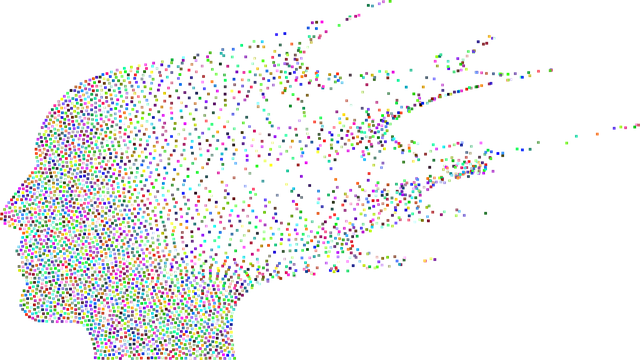Louisville's diverse autism spectrum disorder (ASD) community faces unique challenges that require tailored therapy and support services. Evidence-based practices, including trauma-informed care and Mind Over Matter principles, empower individuals with ASD to manage stress, anxiety, and trauma while fostering resilience and holistic healing. Access barriers, driven by stigma and financial constraints, can be addressed through public awareness campaigns, community programs offering sliding scale fees, and depression prevention strategies tailored for ASD individuals. Effective strategies involve building resilience, creating safe spaces, enhancing self-regulation skills, and training mental health professionals in evidence-based practices to provide quality care for Louisville ASD clients. Policy analysis, advocacy, and increased community awareness are crucial to overcoming barriers and better supporting those affected by trauma on the ASD spectrum.
Louisville’s community of individuals with Autism Spectrum Disorder (ASD) faces unique challenges, particularly regarding trauma support. This article delves into the critical need for specialized therapy services tailored to ASD individuals’ distinct needs. We explore the impact of trauma on this population and strategies to enhance access to effective Louisville autism spectrum disorder therapy. By understanding barriers and implementing informed practices, we aim to highlight innovative approaches that foster healing and improved well-being within the local ASD community.
- Understanding Louisville's Autism Spectrum Disorder (ASD) Community
- The Significance of Trauma Support Services
- Identifying and Overcoming Barriers to Accessing Therapy
- Effective Strategies for Providing Trauma-Informed ASD Therapy in Louisville
Understanding Louisville's Autism Spectrum Disorder (ASD) Community

Louisville’s community of individuals on the Autism Spectrum Disorder (ASD) presents unique challenges and strengths that support services must acknowledge and cater to. Understanding this diverse population requires recognizing the range of abilities, interests, and communication styles within the ASD community. Many in Louisville seek therapy tailored to their specific needs, focusing on areas such as social interaction and communication skills, sensory processing, and adaptive behaviors.
Supportive services play a crucial role in fostering confidence and promoting healthy coping mechanisms for Louisvilians with ASD. Through evidence-based practices, individuals can learn effective stress reduction methods and mood management techniques, enabling them to navigate daily life with greater ease. By tailoring interventions to address the unique aspects of Louisville’s ASD community, support services contribute to enhanced well-being and improved quality of life for those on the spectrum.
The Significance of Trauma Support Services

Trauma support services are invaluable for individuals navigating the challenges of trauma, especially those with conditions like Louisville Autism Spectrum Disorder (ASD). Beyond traditional therapy, these services incorporate innovative approaches such as Mind Over Matter principles to empower individuals in managing stress and achieving anxiety relief. By addressing unique needs, they foster resilience and promote holistic healing, ensuring a better quality of life for those affected by traumatic experiences.
Accessing trauma support can be transformative, providing safe spaces where individuals feel understood and empowered to overcome their struggles. These services often utilize evidence-based practices tailored to individual needs, focusing on stress management techniques that are particularly beneficial for ASD individuals. By integrating these strategies into daily life, folks can develop coping mechanisms that enhance their overall well-being.
Identifying and Overcoming Barriers to Accessing Therapy

Accessing therapy for individuals with Louisville Autism Spectrum Disorder (ASD) can be hindered by several barriers. One significant challenge is the stigma surrounding mental health issues, which often prevents people from seeking support. This reluctance to pursue therapy may stem from a lack of public awareness about ASD and its impact on emotional well-being, as well as misconceptions about what therapy entails. Overcoming this barrier requires sustained public awareness campaigns development that educate both the general public and individuals with ASD and their families.
Another obstacle is financial constraints. Therapy can be expensive, and without adequate insurance coverage or affordable options, many individuals with ASD may not receive the care they need. This problem can be mitigated through community outreach programs that offer sliding scale fees based on income levels, as well as initiatives to expand access to mental health services in underserved communities. Additionally, promoting depression prevention strategies tailored for individuals with ASD can help reduce the financial burden of long-term therapy by fostering resilience and self-care practices.
Effective Strategies for Providing Trauma-Informed ASD Therapy in Louisville

Louisville, known for its vibrant community, has witnessed a growing need for trauma-informed autism spectrum disorder (ASD) therapy. This approach is crucial in addressing the unique challenges faced by individuals on the ASD spectrum who have experienced traumatic events. Effective strategies involve integrating resilience-building techniques tailored to their needs. By fostering a safe and supportive environment, therapists can help clients develop coping mechanisms, enhance self-regulation skills, and build resilience.
A key aspect of providing this specialized therapy is risk management planning for mental health professionals. They should be equipped with the latest evidence-based practices and trained in recognizing and mitigating potential risks. Mental health policy analysis and advocacy play a significant role in ensuring access to quality care. This includes addressing barriers to treatment, promoting awareness among community members, and influencing local mental health policies to better support individuals with ASD who have experienced trauma.
Louisville’s autism spectrum disorder (ASD) community faces unique challenges, and trauma support services play a pivotal role in enhancing their well-being. By addressing barriers to accessing therapy and implementing effective, trauma-informed practices, Louisville can significantly improve outcomes for individuals with ASD who have experienced trauma. Expanding awareness and resources for Louisville autism spectrum disorder therapy ensures that those in need receive the specialized care they deserve, fostering a more inclusive and supportive environment.














